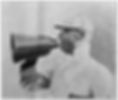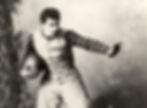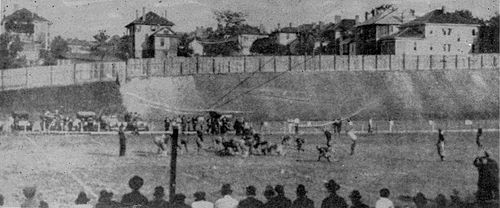Georgia Tech's Destruction of Cumberland College in 1916 Wasn't Exactly As It Seemed
- Mark Schipper
- Oct 8, 2020
- 7 min read
Updated: May 15, 2024

By Mark Schipper
To this day it is a game that lives in infamy. And every year, on its anniversary, the nation is reminded of the ignominy of what transpired in Atlanta on a hot afternoon in 1916.
The worst drubbing in college-football history happened on October 7th during the second year of World War I. It was a 222-0 obliteration administered by Georgia Tech—a program led by the notoriously cutthroat John Heisman—with malice aforethought on Tennessee’s Cumberland College Bulldogs.
The famous photograph of the scoreboard stares out like a nightmarish hallucination. The numbers, hand painted onto rectangular pieces of wood, are slotted into their grooves, quarter by ghastly quarter, with an almost occultic strangeness to their values. The last "2" hangs crookedly off the edge of the board, on the verge of tumbling, because no one had foreseen the possibility of a three-figure final score.

It was 63 to zero after the first quarter. At the half, the score was 126 to nothing, but Heisman was nowhere near finished with Cumberland.
"You're doing alright," he told his team in the locker room, "but you just can't tell what those Cumberland players have up their sleeves"
Following the third period of play, the Yellow Jackets had stretched the lead to 180 points. As the final gun cracked-off into the sweltering downtown sky, the game went final: It was 222 to 0. The vast roundness of the final score stretched toward infinity.
According to the Atlanta Journal Constitution that 42-point final quarter, coming in the wake of 63, 63, and 54 points in the three that preceded it, was as sluggish as it appeared by statistical comparison. The young scribe sent to cover the game—a smug, heartless know-it-all trained in the finest traditions of sportswriting—claimed that “Tech had tired out a good deal towards the close of the game. Otherwise, the score would have been larger than it was.”
The Ramblin' Wreck had physically exhausted itself clobbering an opponent that had gone catatonic shortly after the opening kickoff. It is something to consider what the lads on the other side must have felt like. One of coach Heisman’s own players, Noye Nesbit, later scrawled into his notebook: “Tech’s Disgrace” over a photograph of that final scoreboard.
The statistical details add to the infamy. The Yellow Jackets did not so much as attempt a forward pass, even though coach Heisman was a great proponent and innovator of the attack style. There had been no need and, even when you are ahead 180-0, why risk it? This game was the spiritual progenitor of the Woody Hayes school of football.
Cumberland lost its starting quarterback on the opening kickoff when, (for reasons we might today second guess), he was sent out as a blocking back and got himself trampled. Cumberland’s longest run went for three yards and it happened on its first carry of the game. The Bulldogs' longest pass, a robust ten-yard completion, was executed on fourth down and twenty-two.
The Bulldogs turned the ball over fifteen times, including nine lost fumbles and six interceptions. They finished the day with negative twenty-eight yards total offense.
But for Georgia Tech the outlay somehow was more appalling.
Coaches get giddy when they talk about imposing their team's will on an opponent, demoralizing them with a running attack until they don't want to line up anymore. Heisman’s Yellow Jackets may have come as close to literally making it happen as any team ever has. The Jackets rushed for nearly one-thousand yards on the afternoon, topping out at nine-hundred and seventy-eight, with a mind-bending thirty-two touchdowns behind what must have been a fairly healthy push from the offensive line.
But while this bludgeoning appeared to be a straight forward thing—and in some ways it was—it also was something else, and that’s part of the story that's rarely told. This was a game scheduled out of malice, and played, at John Heisman's end, for blood . . . .
Coach Heisman had a prickly personality—he was what they might call complicated. In the off-season he performed professionally as a dramatic actor, including well-received turns as a Shakespearean player, to supplement his income. He brought that stage voice and a flair for the dramatic to football practice in the fall, where he bellowed at his players through a megaphone until they performed to his satisfaction.
Heisman also was a great ambassador for football during the early days of the sport, an innovator who changed the way the game was played. That was why, shortly after his unexpected death of pneumonia at age sixty-six, he had the game's most-prestigious trophy named in his honor. He was a compelling leader and teacher of young men and a major figure in the history of this country's greatest game.
But alongside that incredible energy to operate, he could be a nasty dictator with a cruel streak that people remembered forever after. In 1919, after Heisman had divorced his wife, for example, he was ordered to leave the city of Atlanta as part of the settlement. During his days as head coach at Auburn he was so loathed for coaching what many regarded as dirty football that fans of opposing teams would show up to heckle Heisman from the sideline, hoping to goad him into a screaming rage. He satisfied them often enough they continued showing up to harass him.
Heisman was known for running up the score on crippled opponents and dressing down referees during games with foul-mouthed, grandiose monologues that went on for pages. Heisman went to war against local newspapers over unfavorable coverage and never hesitated to confront someone he felt had spoken out of turn. When things broke bad with Heisman, it was serious business. He abandoned most of the places he'd lived and coached with bitter feelings going both directions.

In Cumberland's case the spite had been engendered in 1915, the year before the game, when the Bulldogs' baseball team clobbered Georgia Tech, winning by the embarrassing score of 22-0. Heisman had been convinced—by whom we’re never told—the Bulldogs played with professional ringers, cheating the Yellow Jackets out of a fair game. Heisman, like every serious head coach in those days, had complete charge over his team's football schedule. He talked Cumberland into signing a contract to come back the following year and give it a go on the gridiron.
Everything appeared set for the revenge match until Cumberland dropped football in the spring of 1916. Administrators informed Heisman that the Bulldogs would not be boarding that train from Lebanon, Tennessee for Atlanta and the big ball game, after all. But that change of plans, necessitated by the fact they had stopped playing the sport, did not placate Mr. Heisman—head ball coach and chief authoritarian at Georgia Tech.
Heisman threatened Cumberland with legal action, informing the small school, (who had cut football because they couldn't afford it), that he'd take his pound of flesh in the courts if they broke their contract. It would cost Cumberland far less than that, Heisman knew, just to come south and take their drubbing. From Heisman's perspective, dropping the sport was no excuse for missing this particular game.
So Cumberland re-agreed to the competition, but this time without the requisite football team to make good. According to the known history of what happened next, a student captain was put in charge of wrangling a squad from the university's general population. He posted Help Wanted hand bills and wandered campus, eye-balling specimens by height and weight, promising a free weekend trip to sunny Atlanta in exchange for a few hours service on the gridiron.
The Kappa Sigma fraternity allegedly contributed more than their share of players to the effort. Something resembling a traveling squad—these were Iron Man days and twenty athletes were more than enough to compete—was cobbled together.
The train stopped at Nashville on the way south. The Cumberland crew had hoped to poach a few current or recently graduated players from Vanderbilt University, which had a powerful program at that time. Instead, a day after docking in the Music City the train departed bereft of another three bodies after a wild night became a lost weekend for the trio. Maybe the pressure had set in and they grabbed an easy out when they saw it.
Cumberland arrived in Atlanta with fifteen volunteer athletes on an unofficial roster. The Yellow Jackets were expected to compete for a national championship.
The only decent thing Heisman did all afternoon was to allow a shell-shocked Cumberland player to hide out under a sideline jacket on Georgia Tech’s bench. Heisman noticed the youth during a brief interlude between Yellow Jacket touchdowns and likely assumed he was suffering from a head injury. When he informed the player he had come to the wrong sideline, the player responded he was aware of the situation, but if Heisman sent him back he would be thrown to the wolves for another mauling. Heisman tossed the kid a jacket and let him ride out the assault in peace.

Beyond the intense spite and raging desire for vengeance, Heisman did have one substantial reason for doing what he had done—though it could be argued there were far-more sportsmanlike options available to him. For several seasons Heisman had been lamenting what he believed was the stupidity of newspaper polls and the way in which sportswriters rated football teams.
What Heisman hated, he wrote in several of his long, meandering columns for the Atlanta Journal-Constitution—for which he was paid by the word—was how point totals between teams were being compared for rankings purposes. It was all these hired geeks seemed to understand or care about, Heisman said. He wanted an enlightened press capable of rating teams based on how well they played the game, and not on point differentials accumulated over the course of a season.
Heisman knew what every coach has always known, that the circumstances between two teams when they compete are full of nuance, even when they've shared an opponent. A reliable transitive property to handicap them did not exist, and the points scored or surrendered did not necessarily mean anything without additional, crucial context. The polls were a sham operated by a pack of incompetents, so said Heisman.
"Useless," Heisman said. "But finding folks are determined to take the crazy thing into consideration, we at Tech determined this year to show them that it was no very difficult thing to run up a score in one easy game, from which it might perhaps be seen that it could be done in other easy games as well."
Over and over the coach said the things sportswriters cared about would lead to unscrupulous coaches running up scores against weak competition in order to appear stronger than they were. In Cumberland College, Heisman found both the right amount of malice, and the proper conditions, to make his point.
It was too bad his team ran out of energy at the end.







